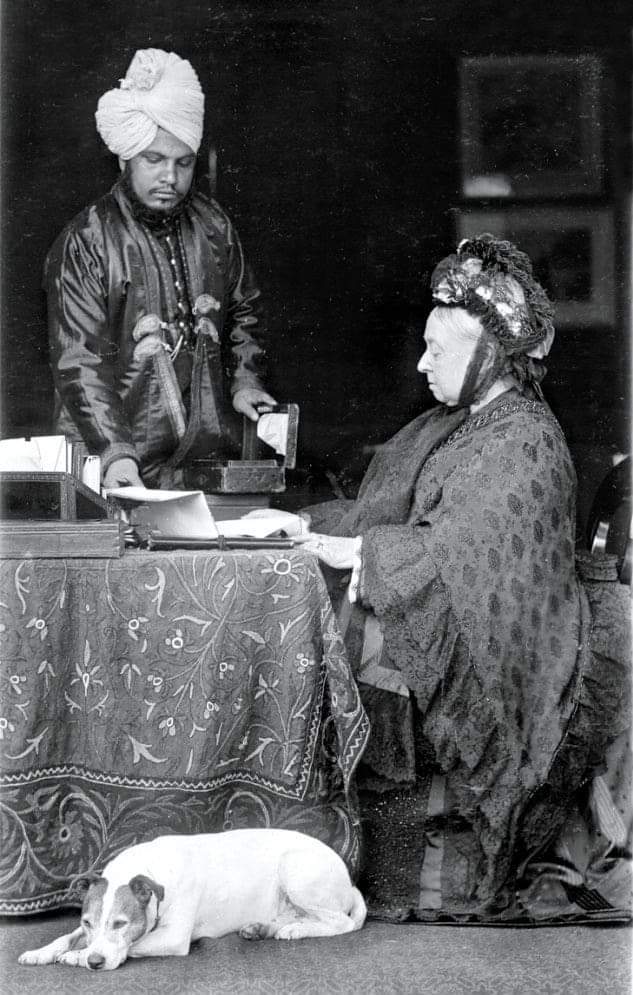Prior to this appointment, a 24-year-old Karim was described by Queen Victoria as ‘tall with fine serious countenance’.
Originally a clerk in Agra, he soon became a favourite with Queen Victoria and she promoted him to be her native language teacher, known as a Munshi, teaching her Hindustani.
He was given titles, land and cottages in royal estates. Victoria also had his portrait painted. This attention displeased the royal household, leading to several intrigues.
Karim appeared to have taken advantage of this and on one occasion refused to attend the wedding of the Queen’s granddaughter because he had been allocated a seat in the gallery alongside other servants. Even though he had been hired as a servant, he considered himself to be too superior.
Surprisingly when the Queen’s handlers went to complain about his behaviour, the Queen defended him saying it was so wrong to cause pain to Karim.
At a time when the British empire was at its height, a young Muslim occupied a central position of influence over its sovereign. It was a relationship that sent shockwaves through the royal court and was arguably a relationship far more scandalous than thought
In letters to him over the years between his arrival in the UK and her death in 1901, the queen signed letters to him as ‘your closest friend’.
On some occasions, she even signed off her letters with a flurry of kisses – a highly unusual thing to do at that time.
The two did set tongues wagging by spending a quiet night alone in a highland cottage. (Just the two of them) .
Following Victoria’s death in 1901, his son Edward VII, became the successor. Immediately after ascending to the throne King Edward VII , deported Karim back to India and ordered that all correspondences between him and his mother (Queen Victoria) be destroyed.
Karim subsequently lived quietly near Agra India , on the estate that Victoria had arranged for him, until his death at the age of 46 in 1909.
It appears Victoria had a soft spot for coloured people one entry in Journal show her describing a black man he saw in Germany as a “tall dark and handsome. “
By: Odhiambo Levin Opiyo
